One of the many reasons why Bali is a forever-loved tourist destination is that the Balinese community is incredibly generous with their culture. Opening their lands, temples, and homes to tourists from all over the world, Bali is one of the most welcoming cultures in the world.
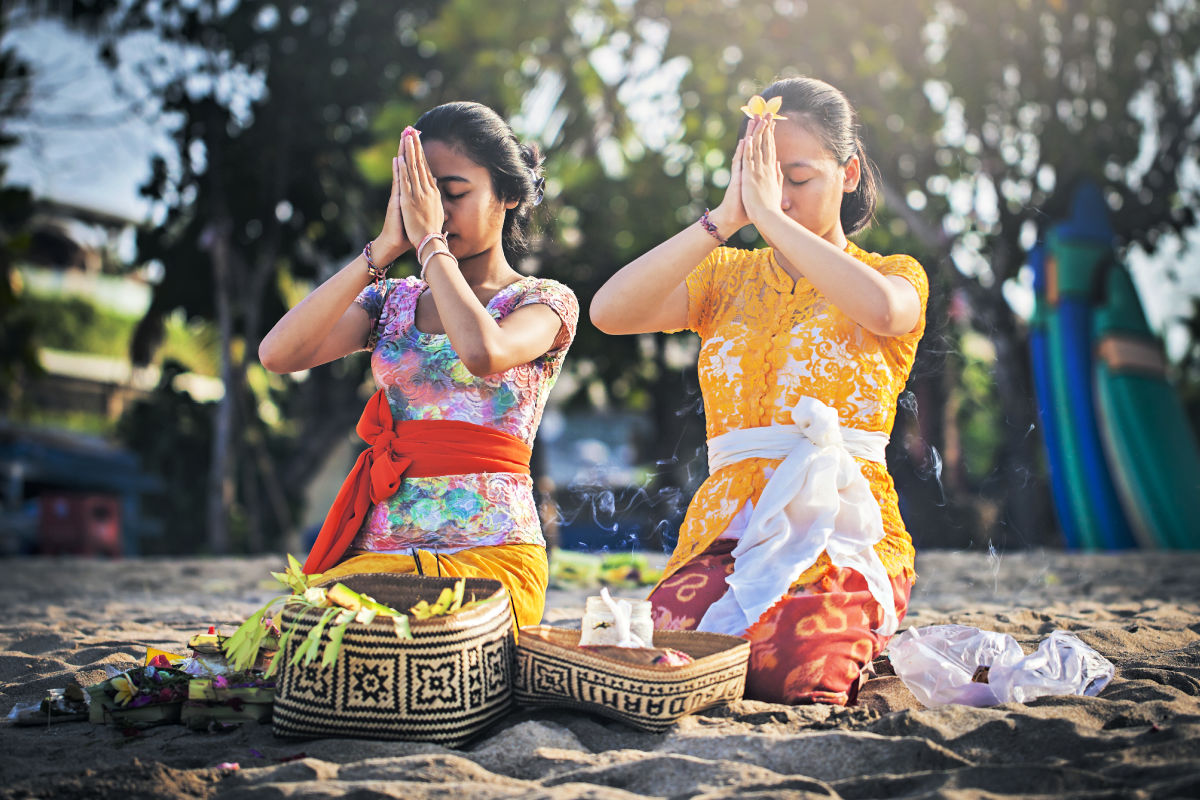
For tourists wishing to gain a deeper understanding of the nuances of Balinese culture, there are a few quintessentially Balinese activities, practices, and pastimes that you can experience during the next vacation that will have you meeting, interacting, and learning with local people, engaging with local communities and naturally experiencing authentic Balinese culture in a respectful way. What more could you ask for!
From cultural dances to important ceremonies, from the underwater realms to pilgrimages to the island’s sacred peaks, these are the nine most quintessentially Balinese things to do on your upcoming trip to the Island of the Gods.
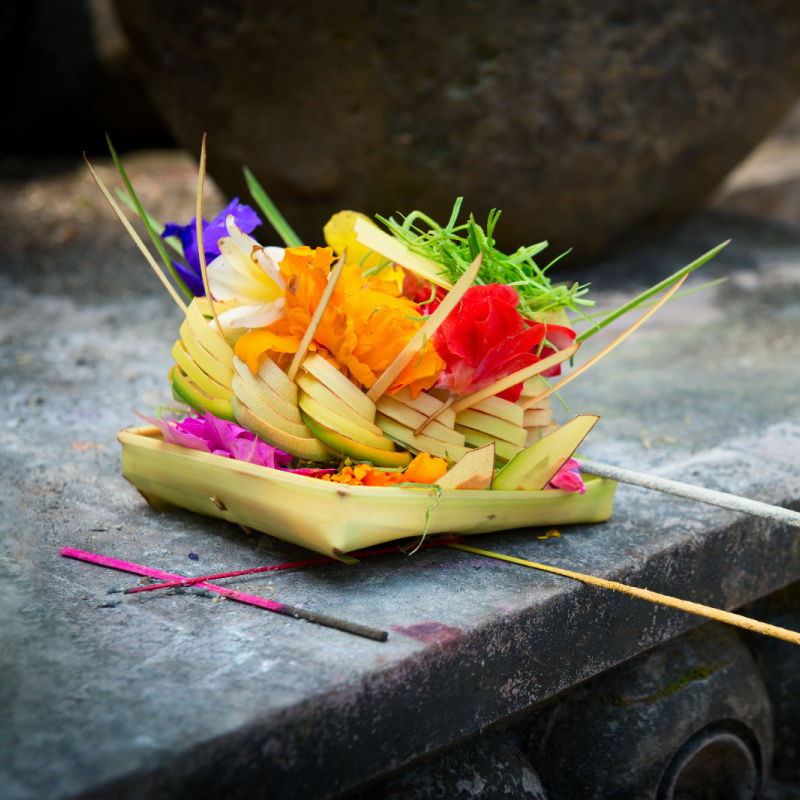
Attend a Cultural Dance Performance
Bali’s traditional dance performances are far more than mere entertainment; they are a storytelling art form that weaves mythology, history, and spirituality into intricate movements and expressive gestures.
The Kecak dance, often performed in dramatic open-air settings such as Uluwatu Temple, features a chorus of chanting men creating a hypnotic rhythm as dancers enact tales from the Ramayana. Equally captivating is the Barong dance, a vibrant dramatization of the eternal battle between good and evil, represented by the benevolent Barong and the malevolent Rangda.
By attending these performances, travelers witness a living tradition that embodies the island’s spiritual ethos and artistic heritage. The vibrant costumes, gamelan music, and sacred narratives combine to offer an immersive glimpse into the Balinese worldview.
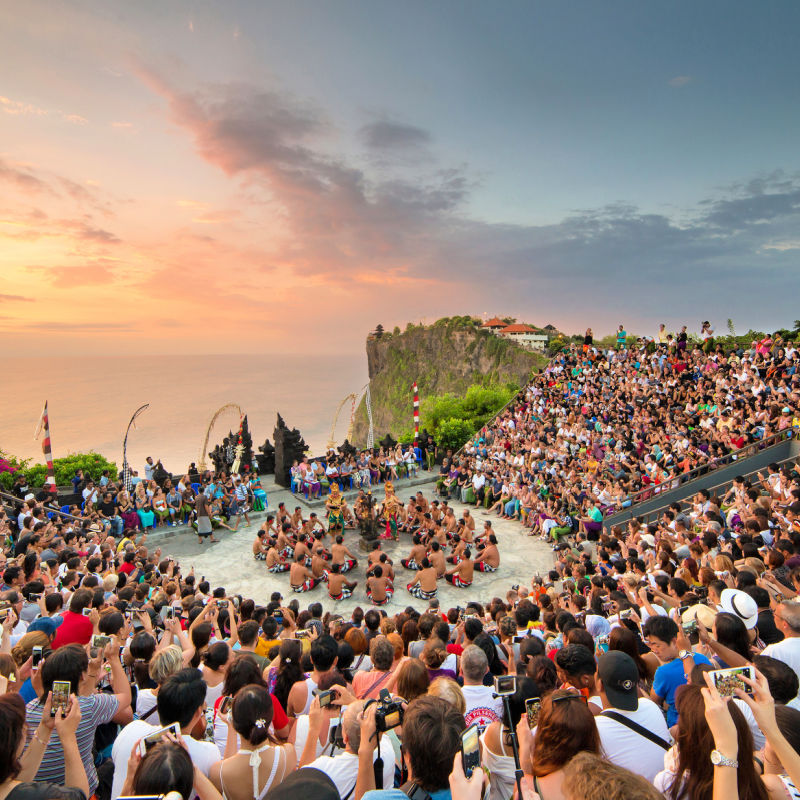
Take a Balinese Cooking Class
The flavors of Bali are as vibrant as its landscapes, with dishes crafted from fresh, locally sourced ingredients and infused with aromatic spices.
Participating in a Balinese cooking class is an invitation to uncover the secrets of this flavorful cuisine. Classes typically begin with a visit to a bustling traditional market, where participants learn to identify exotic ingredients like galangal, turmeric, and kaffir lime.
Back in the kitchen, under the guidance of skilled chefs, students prepare iconic dishes such as satay lilit, a fragrant blend of minced fish and spices, and lawar, a celebratory salad of coconut and herbs.
Cooking these dishes is not only a culinary adventure but also a cultural exploration, as each recipe carries stories of communal feasts, ceremonies, and family traditions. By the end of the class, the joy of savoring your creations connects you to the heart of Balinese hospitality.
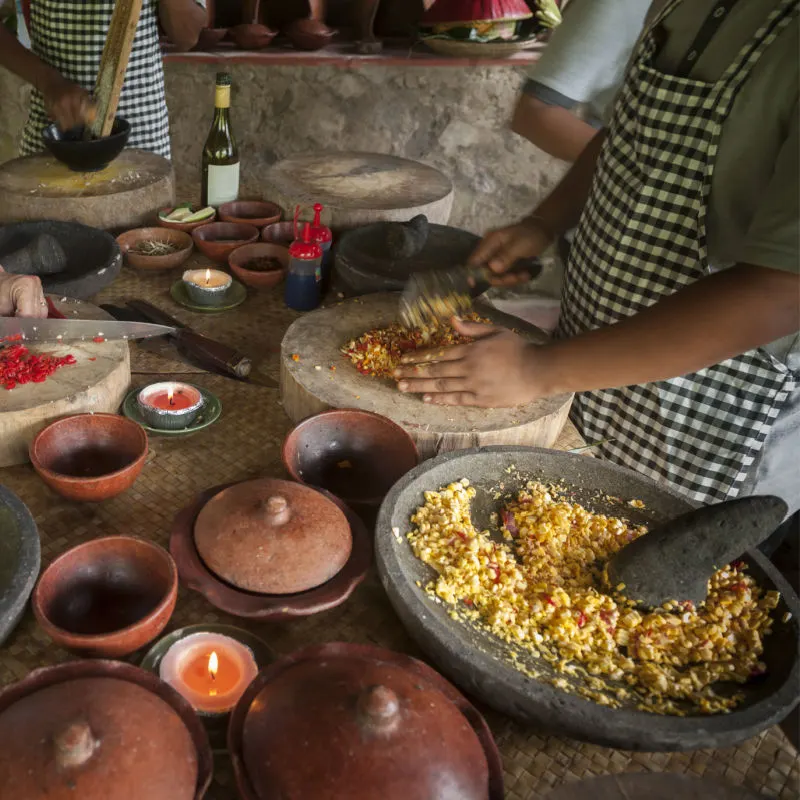
Attend a Traditional Ceremony
Balinese culture is steeped in ritual and ceremony, offering travelers a unique opportunity to witness its spiritual heartbeat. Galungan and Kuningan, two of Bali’s most significant festivals, celebrate the triumph of dharma (righteousness) over adharma (evil) and honor ancestral spirits. During these times, the island is adorned with penjor—graceful bamboo poles decorated with palm fronds and offerings.
If your visit doesn’t coincide with these festivals, attending an odalan, a temple anniversary celebration, or participating in a melukat purification ritual can be equally enriching. These ceremonies are deeply personal yet inclusive, inviting visitors to share in the community’s devotion.
Witnessing these rituals fosters a sense of connection to the island’s spiritual fabric, as the harmonious coexistence of the sacred and the mundane becomes evident.
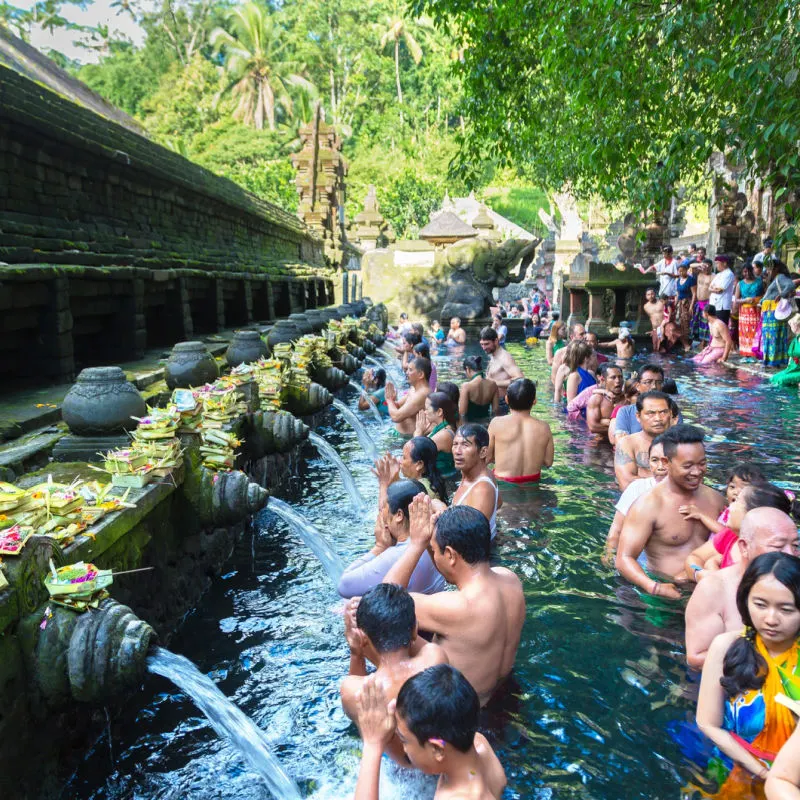
Have a Traditional Balinese Massage
A traditional Balinese massage is more than a moment of relaxation; it is a holistic healing practice rooted in ancient techniques. Combining acupressure, reflexology, and aromatherapy, this massage aims to balance body and mind.
The experience often begins with the use of aromatic oils infused with herbs such as sandalwood or frangipani, chosen for their therapeutic properties. As skilled hands work to release tension and stimulate circulation, you’ll feel a profound sense of rejuvenation.
The massage’s rhythmic movements echo the island’s philosophy of balance—harmony between the physical, emotional, and spiritual. Receiving this treatment not only provides a glimpse into Bali’s traditional wellness practices but also fosters a sense of serenity that lingers long after.

Take a Pilgrimage to the Mother Temple
Perched on the slopes of Mount Agung, Besakih Temple, known as the Mother Temple, is Bali’s holiest and largest temple complex. A pilgrimage here is both a spiritual and cultural journey. The temple’s tiered shrines and gateways, adorned with intricate carvings, stand as a testament to Bali’s devotion to its Balinese Hindu faith.
Visiting Besakih offers a profound opportunity to observe devotees in prayer, offering woven baskets filled with flowers, rice, and incense. The panoramic views from the temple grounds are equally awe-inspiring, enhancing the sacred atmosphere.
To walk among these ancient structures, accompanied by the sound of gamelan music and the scent of incense, is to experience the spiritual heart of Bali. For travelers, the pilgrimage is a chance to honor the island’s deep-rooted spirituality and appreciate its architectural grandeur.
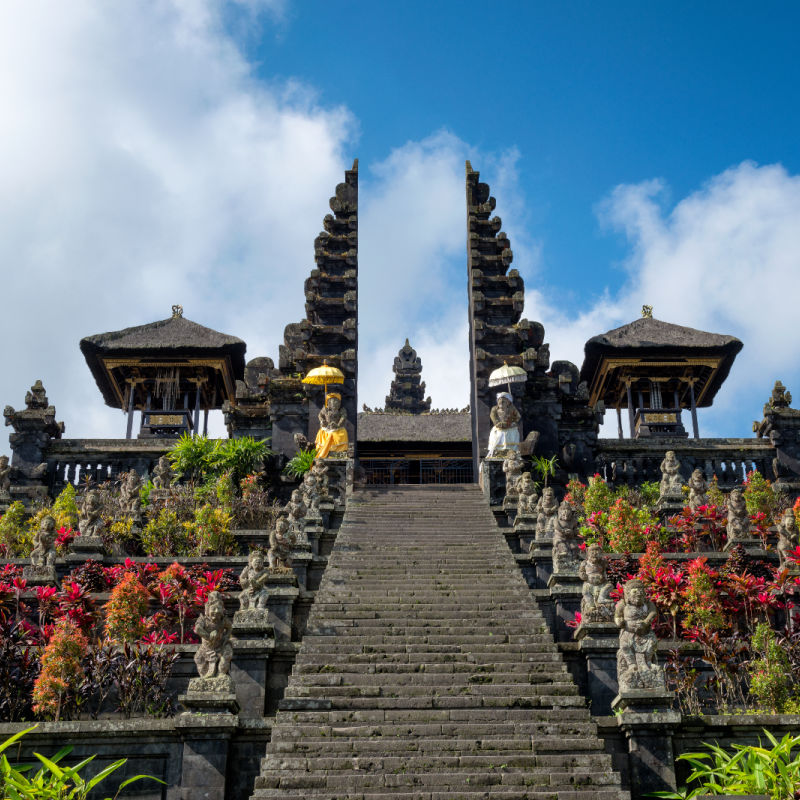
Hike Mount Batur or Mount Agung
Bali’s volcanic peaks, Mount Batur and Mount Agung, offer adventurous travelers a chance to connect with the island’s natural and spiritual landscapes. A sunrise trek up Mount Batur is a popular choice, rewarding hikers with breathtaking views of Lake Batur and the surrounding caldera bathed in golden light.
For those seeking a more challenging ascent, Mount Agung—Bali’s highest and most sacred peak—offers a profound sense of achievement and connection. Climbing these volcanoes is a deeply symbolic act, reflecting Bali’s belief in mountains as the abode of the gods.
The journey is as transformative as the destination, instilling a sense of awe and reverence for Bali’s raw, elemental beauty.
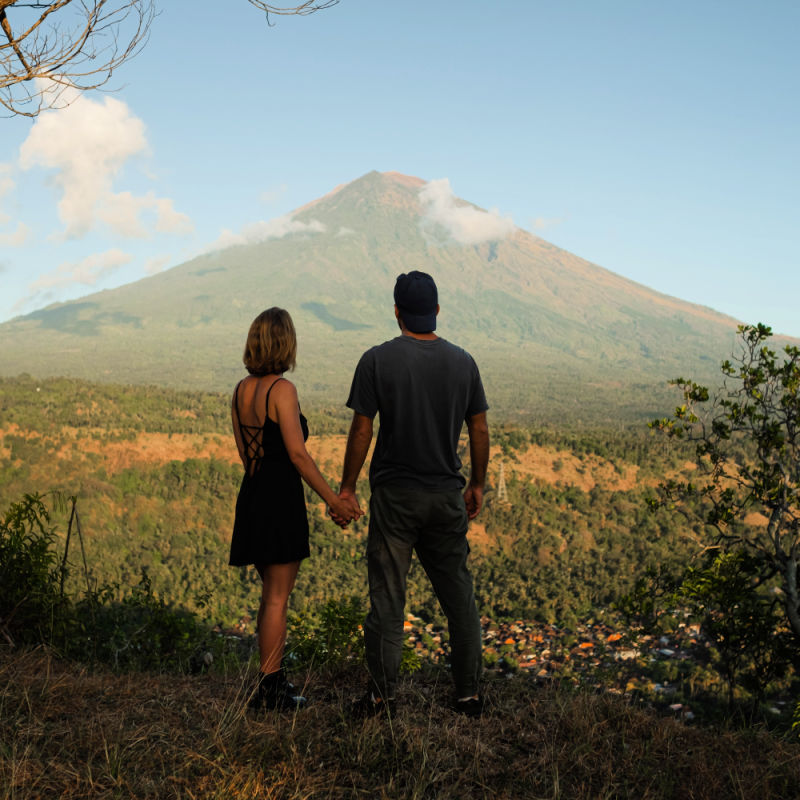
Explore Bali’s Underwater Realms
Bali’s surrounding seas are a treasure trove of vibrant marine life and stunning coral gardens. Snorkeling or diving in locations like Amed, Pemuteran, or Nusa Penida unveils a kaleidoscope of colors beneath the waves.
These experiences are more than aquatic adventures; they’re a window into Bali’s intrinsic connection to its waters. Many coastal communities still rely on fishing, maintaining practices passed down through generations.
Visiting a fishing village, such as Kusamba or Jimbaran, allows travelers to witness traditional techniques and experience the rhythm of life by the sea. Sampling freshly caught seafood prepared using time-honored recipes further deepens this connection.
Exploring Bali’s underwater realms and coastal cultures reveals the island’s profound relationship with its oceans, offering both natural beauty and cultural insight.
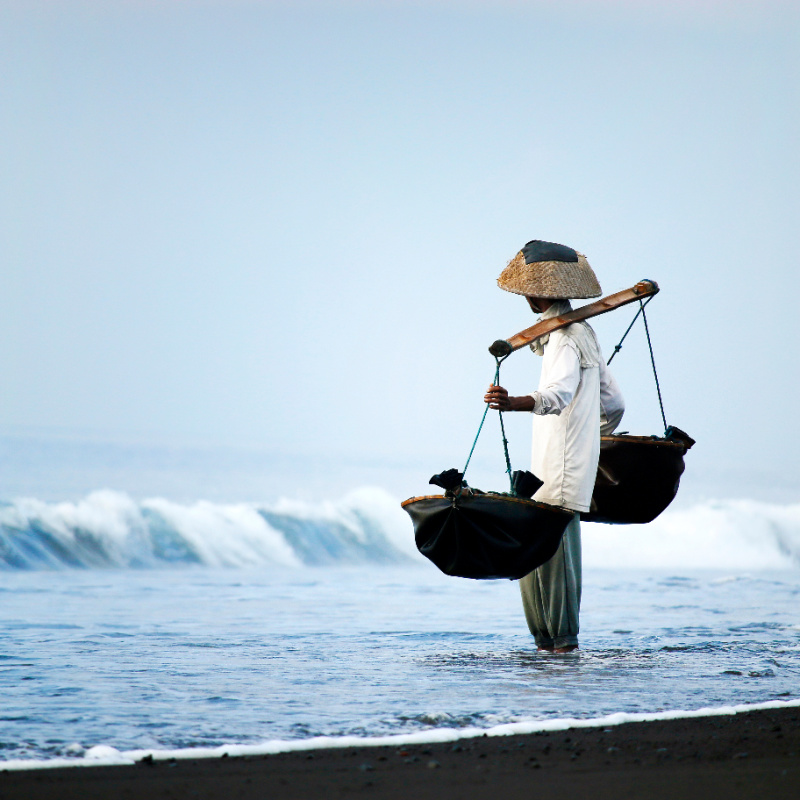
Explore Bali’s Coffee Culture
Bali’s highland regions, such as Kintamani and Munduk, are renowned for their coffee plantations. Visiting these plantations is an immersive journey into the art of coffee-making, from bean to cup. Guided tours offer insights into the cultivation of Arabica beans, known for their distinct fruity and floral notes. Coffee farming in Bali is often a family affair, with techniques reflecting sustainable practices and deep respect for the land.
Sipping a freshly brewed cup while overlooking the misty hills not only tantalizes the taste buds but also highlights the community’s dedication to preserving their craft. Bali’s coffee culture embodies the island’s spirit of mindfulness and appreciation for nature, making it an essential experience for coffee enthusiasts.
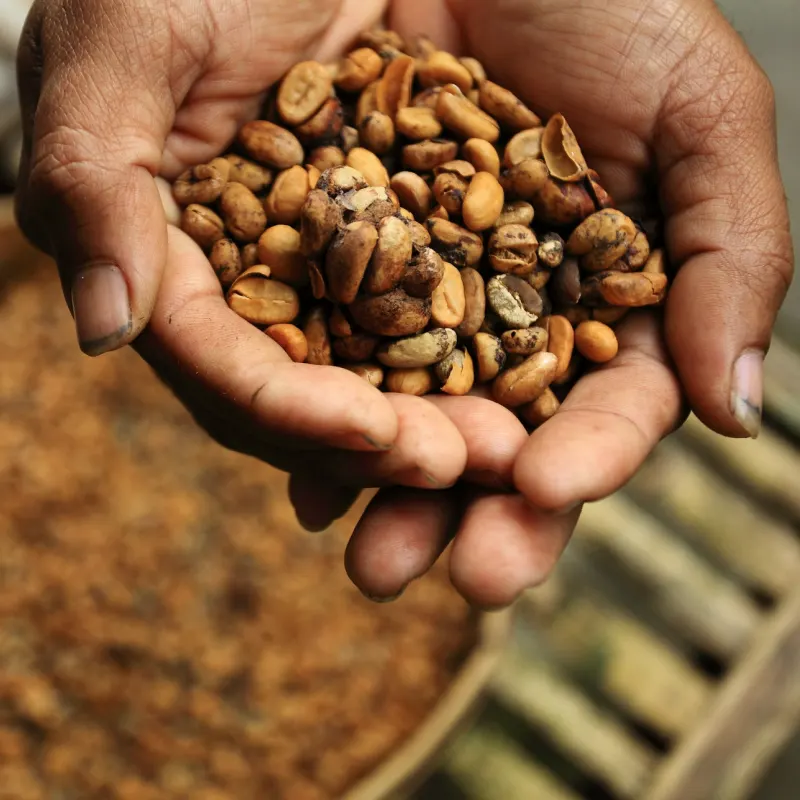
Nongkrong: Embracing the Art of Just Hanging Out
In Bali, the simple act of nongkrong, or hanging out, is a cherished tradition that underscores the importance of community and connection. Whether it’s in a village bale banjar (community pavilion), a roadside warung (small eatery), or a beachfront spot, nongkrong is about savoring the present moment. It’s a time for casual conversation, laughter, and people-watching, often accompanied by a cup of sweet tea or kopi tubruk (traditional brewed coffee).
For visitors, participating in nongkrong offers a chance to slow down and experience the island’s relaxed rhythm. It’s a great way to learn the language too. This practice reflects Bali’s emphasis on togetherness and simplicity, reminding travelers of the value of genuine human connection. By embracing nongkrong, you’ll find yourself immersed in the warmth and authenticity of Balinese life.
Remove All Ads & Unlock All Articles… Sign up for The Bali Sun Premium

Plan Your Bali Holiday:
Book The Best English Speaking Drivers For Airport Transfers & Tours
Choose From Thousands of Bali Hotels, Resorts, and Hostels with Free Cancellation On Most Properties
Book Cheap Flights To Bali
Don’t Forget Travel Insurance That Covers Medical Expenses In Bali
For the latest Bali News & Debate Join our Facebook Community
SUBSCRIBE TO NEW POSTS
Enter your email address to subscribe to The Bali Sun’s latest breaking news, straight to your inbox.
